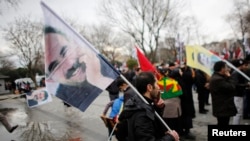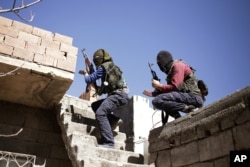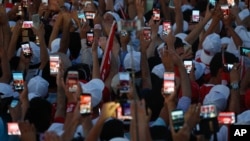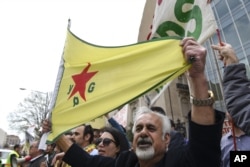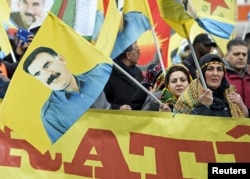Fears are growing in Turkey about rising ethnic tensions between Turks and Kurds. The country is in the midst of a wave of Turkish nationalism in the aftermath of July’s failed coup, at the same time Kurdish rebels of the PKK stepped up their military campaign for autonomy.
The dangerous combination of conflicting forces spilled into violence earlier this month in the Black Sea town of Sinop. Scores of Turks, armed with sticks and knives, marched into the town’s Kurdish neighborhood, attacking residents and smashing shop windows, to“Turkish nationalist chants.” The fighting, which saw dozens injured, was so bad security forces were forced to declare a curfew. A media blackout on the story quickly followed.
The incident follows a Kurdish builder being burned alive by a fellow worker in Istanbul only days after complaining to his family about being targeted by Turkish nationalists for being a Kurd. Local media also reported a shipbuilder was attacked and hospitalized in Istanbul for reportedly speaking Kurdish on a telephone on the street.
Ertugrul Kurkcu, a senior member of parliament with Turkey’s main pro-Kurdish party, the HDP, says the attacks are part of an alarming trend caused by the wave of Turkish nationalism being stoked by President Recep Tayyip Erdogan and his ruling AKP.
“Tayyip Erdogan is calling for total extermination of the PKK, and this is reflected by the AKP media and, if you are a nationalist, the only solution you would believe is to decapitate opposition politicians and the Kurdish activists and this hatred is growing. And this inevitably provokes anger and, in one night, mobs can start lynch attacks across Turkey’s western cities in the Kurdish neighborhoods.” Kurkcu said.
Kurkcu is a deputy for Izmir, Turkey's third largest city, located in the western part of the country. Izmir, like many cities, has a large Kurdish minority, many of whom fled fighting in the country’s war-torn southeast. Izmir is also a traditional bastion of Turkish nationalism and the power base of the secular main opposition Republican People’s Party.
In the aftermath of July’s failed military coup, President Erdogan, who narrowly escaped with his life, has sought to take advantage of the unprecedented cross-party opposition to the coup, by creating a consensus under the Turkish flag.
“The only strategy is to consolidate this 60 percent Turkish nationalist Sunni alliance,” observes political columnist Kadir Gursel of Turkey’s Cumhuriyet newspaper. “But this is not a wise step; it will engender evil dynamics of polarization, which will fuel more and more conflict and empower separatist sentiments.”
Many Kurds joined their Turkish brethren and poured onto the streets to oppose the July coup; but, Erdogan, in the aftermath of the coup attempt, excluded the leader of the pro-Kurdish HDP, Selahattin Demirtas, from cross-party talks, calling him a terrorist supporter. Demirtas’ exclusion was followed by the PKK stepping up its military operations against security forces, killing dozens.
Prime Minister Binali Yildirim has ruled out any political solution to the decades-long conflict, promising, like all his predecessors for the last three decades, to annihilate the PKK.
The cycle of violence is set to escalate further, with Ankara launching a military incursion into Syria, targeting not only Islamic State, but what it claims is the PKK’s Syrian affiliate, the YPG. “The PKK will step up its attacks inside,” warns Aydin Selcen, a former senior Turkish diplomat who served widely in the region. “In Turkey, things can spin out of control, especially in the Southeast. In that case, we won't be back to the peace process. It will be very hard to predict what will happen.”
“As we saw in the Kobani crisis, the politicized Kurdish population in Turkey is very sensitive,” says columnist Gursel. In the autumn of 2014, Kurds demonstrated across Turkey in support of Syrian Kurdish fighters defending the town of Kobani, which faced being overrun by Islamic State. To end the unrest, which claimed 31 lives, the government was forced to turn to the imprisoned leader of the PKK, Abdullah Ocalan.
In the face of renewed ethnic tensions, Ankara, in a move widely interpreted as a gesture to its Kurdish minority, allowed Ocalan to be visited by his brother, his first visit in more than a year. Pro-Kurdish deputy Kurkcu says both sides need to act and pull back the country from the precipice.
“Mutual hatred is growing and if things evolve this way, and there is no hope that a common life of different nationalities and ethnicities is possible, in the near future, then the bells of civil war will be ringing. This is a very, very risky situation.”




